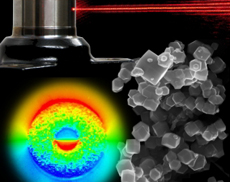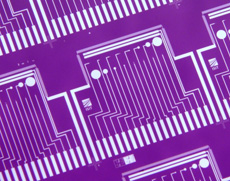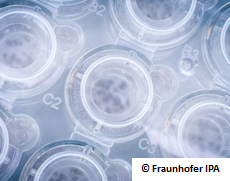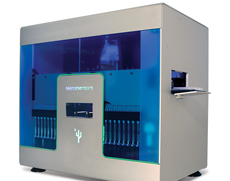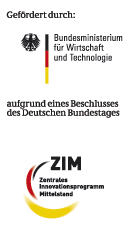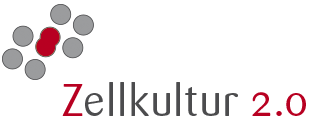
The network idea
The term "cell culture 2.0" expresses the vision to develop a new type of cell culturing process, which is completely adapted to the individual needs of cells. In contrast to current methods, which are strongly influenced by working hours of the laboratory personnel, environmental conditions and laboratory equipment, future cell culture processes should be controlled by the growth and synthesis behavior of cells and enable a comprehensive industrial use of cell cultures. To realize this vision, "cell culture 2.0" brings together specialists from different fields, both technology developers and users, with the aim to develop new ideas for highly innovative products and services.
The network can only master this task if it exceeds the existing limits of cell culture. For this reason, the network not only comprises companies and research institutions that are already players in the cell culture market, but also companies from adjacent areas. Additional partners will be integrated throughout the network work in co-operation projects. The size of the network participants is less important for the success of the network than the innovative force resulting from combining the various competencies.
The Goal
The task of the network and its partners is to develop innovative technologies and services to meet the needs arising in connection with cell culture systems and products, and to produce first prototypes. Thematically, the network cell culture is now focusing on three areas:
Automation of analysis and process control
In many cell culture applications glucose, lactate, pH, oxygen content and other parameters important for the growth of the cells are determined automatically. In addition, metabolites, enzymes, hormones, etc. are frequently measured in basic research. The fully automatic determination of such parameters and the modeling of the processes occurring in the bioreactor has just been started. However, at least a semi-automatic definition of corridors and an optimization of the process control are necessary for widespread use of cell culture. The network is therefore looking into novel process and device concepts that enable an automatic determination of different parameters and allow process controls tailored to the specific needs of the cell cultures.
Methods and devices for the automation of cell culture processes
The generation, maintenance and propagation of cell lines is today still a process composed of many manual steps. In the laboratory routine, this approach is error prone and often binds the capacity of staff for routine work.
In addition the precise determination of amount and function of cellularily expressed proteins is still performed manually. In the cell culture 2.0 network we are currently developing projects that allow a high degree of automation of many cell culture steps. These will give rise to solutions that either simplify the daily lab routines or focus on the automated production of large quantities of cells or cell products.
Cell cultures in medical applications under GMP conditions
For the medical use of cell cultures, like for example the use of autologous cells in tissue engineering or new methods of tumor treatment, there is a need for closed single-use systems that meet GMP requirements. The challenge during the manufacturing process of autologous cells is that each production batch must be handled separately to prevent cross-contamination between batches of cells from different patients. For this reason, a direct parallelization of process steps without spatial and temporal separation is frequently difficult to implement. Today, most process steps - both in production and in quality control - are performed manually. The complexity of the entire processes requires the work to be performed in GMP laboratories using highly qualified personnel. This gives rise to very high costs, which prevent many companies from entering the market. The network will therefore also deal with concepts for an automated production of cell cultures for medical applications. The primary objective is to reduce the high cost of today. The use of fully enclosed and fully automatic devices will allow production in areas of lower purity classes and reduce the need for highly qualified personnel.
The network
The network consists of mainly medium-sized companies and research institutions in the broad field of life sciences. In particular, technology-oriented medium-sized companies receive a broad range of stimuli from the network to strengthen their competitiveness in the national and international environment.
Through networking and the involvement of other actors, the network is further developed and extended and is also open to new partners.
The network "cell culture 2.0" newly established at the initiative of Ellwangen based EurA AG is funded by the Federal Ministry of Economics and Technology (BMWi).
A ccoperation cluster of
EurA AG
Max-Eyth-Straße 2
73479 Ellwangen
Germany

Your contact:
Andrea Staudler, PhD
Hamburg Office
Schnackenburgallee 116 a
22525 Hamburg, Germany
Tel: +49 (0)40 5488704-38
Fax: +49 (0)40 5488704-10
andrea.staudler@![]() eura-ag.de
eura-ag.de
www.eura-ag.de
